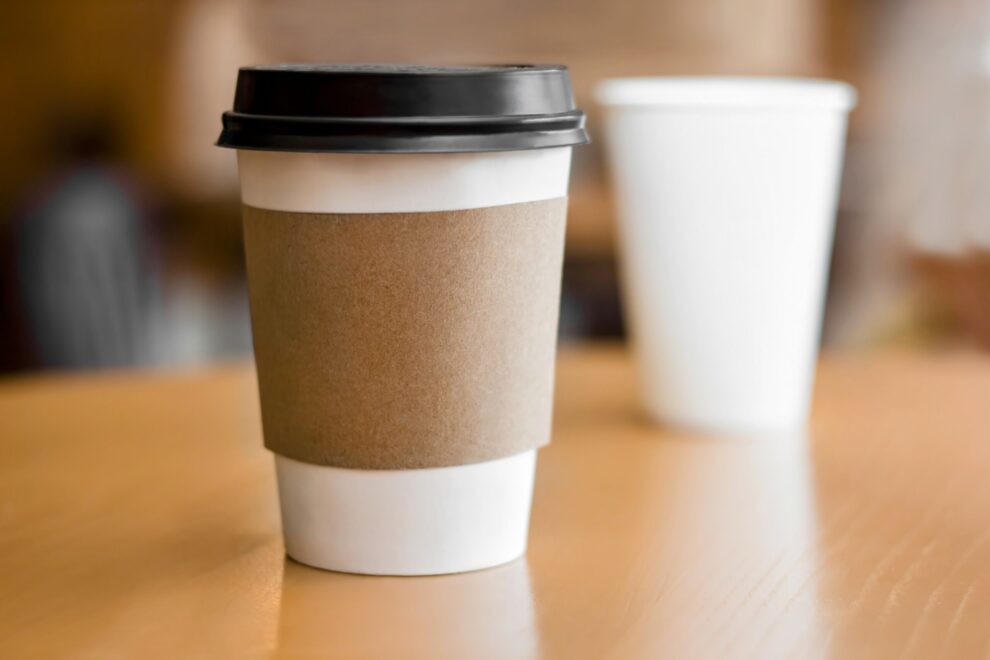Morning commuters and roasted coffee lovers beware: 16bn paper cups are used for coffee every year, which leads to the cut of 6.5m trees, 15bn litres of wasted water, and the waste of enough energy to power 54,000 homes for a year.
The production of single-use packaging materials (paper-based or other materials) involves high energy consumption, depletes natural resources, and releases greenhouse gases — and this is without mentioning health and societal issues.
In addition, materials needed to produce packaging are mostly imported from outside the EU.
Study after study proves we are transgressing planetary boundaries faster than ever, while at the same time, the production of packaging and associated waste has steadily grown over the past 20 years — with the EU seeing a record of 177kg of packaging waste per person in 2020. The time is ripe for structural and resilient change.
Packaging reuse systems allow us to break free from the conventional linear model of producing, using, and discarding. Adopting reusable packaging systems — where packaging like a cup, food container, or bottle is conceived, designed, and placed on the market with mechanisms to ensure it is used many times by consumers instead of just once — can reduce the consumption of virgin materials, and it has the potential to reduce GHG emissions for most packaging options.
Examples already present in the market prove the benefits of reusable packaging go beyond environmental considerations: it provides new revenue streams, creates local employment, and retains value in our economy.
At this critical moment when Europe seeks to reduce its energy and material dependence on third countries, adopting such reuse systems can re-energise local economies by reducing both imports and reliance on global supply chains.
But make no mistake: reusable packaging must be scaled up and implemented across Europe. For this to happen, we need to build infrastructure where there is none, and time to implement it from scratch (or almost from scratch) in every town.
The Reuse Blueprint launched this week by Zero Waste Europe, in cooperation with civil society organisations, companies and European cities in five European countries through the Reuse Vanguard Project (RSVP), marks the start of true change.
The Blueprint is designed to provide a solid framework for municipal authorities, reuse operators, and system users (such as hospitality, retail, catering businesses and consumers) to design and implement systems for reuse in the takeaway packaging sector for food and drinks.
It is currently being tested in cities like Aarhus, Barcelona, Berlin, Ghent, Haar, Leuven, Paris, Rotterdam, and Tallinn.
We need a strong signal from our political leaders.
Returning to our morning coffee example: it’s not enough to have commuters from and to these cities access reusable on-the-go coffee mugs.
PPWR lobbying in parliament
The big mainstream shift we need can ensure that the responsibility doesn’t lie again with consumers; and that more circular options — such as reusable coffee mug systems with easy return points — are conveniently available to all. But for this to happen, we need concrete reuse targets in EU legislation.
There is substantial support for this transformation — from leading global brands and retailers to civil society organisations and academia.
Yet, the unprecedented (according to our parliament contacts) level of lobbying seen in Brussels these days around the Packaging and Packaging Waste revision (PPWR) is making a handful of politicians strangely hesitant, and the EU risks remaining attached to single-use packaging and a throw-away economy.
The focus is now on MEPs, who will cast their votes in the week of 23 October 2023. Will they vote for reuse targets to drive the reuse transition in the packaging sector? Or, on the contrary, maintain the status quo and even damage existing national efforts by creating legal ambiguity? The ball is in their court.
Source : EU Observer















